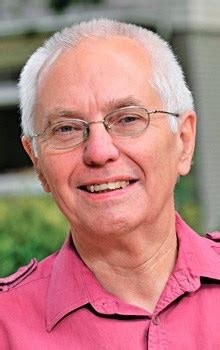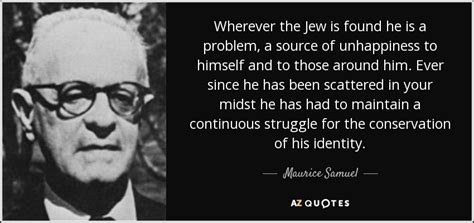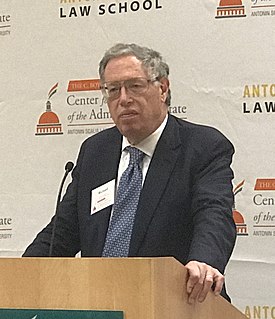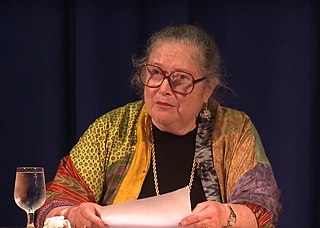A Quote by F. F. Bruce
Whatever else may be thought of the evidence from early Jewish and Gentile writers it does at least establish, for those who refuse the witness of Christian writings, the historical character of Jesus Himself.
Related Quotes
The Bible is a collection of writings by lots of different people written over maybe a thousand years, from a number of centuries before Jesus to a century after Jesus. I often like to refer to it as "the Scriptures" to make that point about it being lots of writings that were originally separate. What these writings have in common is that "the Old Testament" is writings that grabbed the Jewish people; writings that convinced them that they were God's word to them. And "the New Testament" is writings that grabbed people who believed in Jesus in the same way.
If there were even one spark of evidence from antiquity that Jesus even may have gotten married, then as a historian, I would have to weigh this evidence against the total absence of such information in either Scripture or the early church traditions. But there is no such spark-not a scintilla of evidence-anywhere in historical sources. Even where one might expect to find such claims in the bizarre, second-century, apocryphal gospels...there is no reference that Jesus ever got married.
In the christian view, the ultimate evidence for the existence of God is Jesus Christ.? If there is a God, we characters in his play have to hope that he put some information about himself in the play. But Christians believe he did more than give us information. He wrote himself into the play as the main character in history, when Jesus was born in a manger and rose from the dead.
The Christian who is truly intimate with Jesus will never draw attention to himself but will only show the evidence of a life where Jesus is completely in control. This is the outcome of allowing Jesus to satisfy every area of life to its depth. The picture resulting from such a life is that of the strong, calm balance that our Lord gives to those who are intimate with Him.
In order to teach a course in the history of Western religious thought, I had to do a great deal of research in the writings within the Judaic and Christian traditions and I was astonished to find in those writings philosophical thought of great power and sophistication. These writings completely blew away all my opinions about what I had taken to be the irrationality or immaturity of religious ideas, opinions which were and still are fashionable in many intellectual and literary circles today.
It shouldn't be difficult, then, to make the transposition at this point into the early Christian vision of Jesus and the Spirit and the way in which the material world is both celebrated and renewed through their work. The Jewish basis for the early Christian patterns of belief and behavior is clear. It is important that God's people are embodied, because God made this world and has no intention of abandoning it. The material of creation is a vessel made to be filled with God's new life and glory, even though the transformation may involve suffering, persecution, and martyrdom.
If you're openly living in unrepentant sin, whatever it may be, not just homosexuality, adultery, fornication, premarital sex between heterosexuals, whatever it may be, I believe that's walking in open rebellion to God and to Jesus Christ. I would not characterize that person as a Christian because I do not think the Bible would characterize them as a Christian.
There are two life-forces in the world I know: Jewish and gentile, ours and yours...I do not believe that this primal difference between gentile and Jew is reconcilable. You and we may come to an understanding, never to a reconciliation. There will be irritation between us as long as we are in intimate contact. For nature and constitution and vision divide us from all of you forever.
I would argue that the truth of Easter does not depend on whether there was an empty tomb, or whether anything happened to the body of Jesus. ... I do not see the Christian tradition as exclusively true, or the Bible as the unique and infallible revelation of God. ... It makes no historical sense to say, 'Jesus was killed for the sins of the world.' ... I am one of those Christians who does not believe in the virgin birth, nor in the star of Bethlehem, nor in the journeys of the wisemen, nor in the shepherds coming to the manger, as facts of history.
The evidence for our New Testament writings is ever so much greater than the evidence for many writings of classical authors, the authenticity of which no one dreams of questioning. And if the New Testament were a collection of secular writings, their authenticity would generally be regarded as beyond all doubt.
Seminary also introduced me to the historical study of Jesus and Christian origins. I learned from my professors and the readings they assigned that Jesus almost certainly was not born of a virgin, did not think of himself as the Son of God, and did not see his purpose as dying for the sins of the world. .. I also found the claim that Jesus and Christianity were the only way of salvation to be troublesome.
This general tendency to eliminate, by means of unverifiable speculations, the limits of the categories nature presents to us is the inheritance of biology from The Origin of Species. To establish the continuity required by theory, historical arguments are invoked, even though historical evidence is lacking. Thus are engendered those fragile towers of hypothesis based on hypothesis, where fact and fiction intermingle in an inextricable confusion.

































